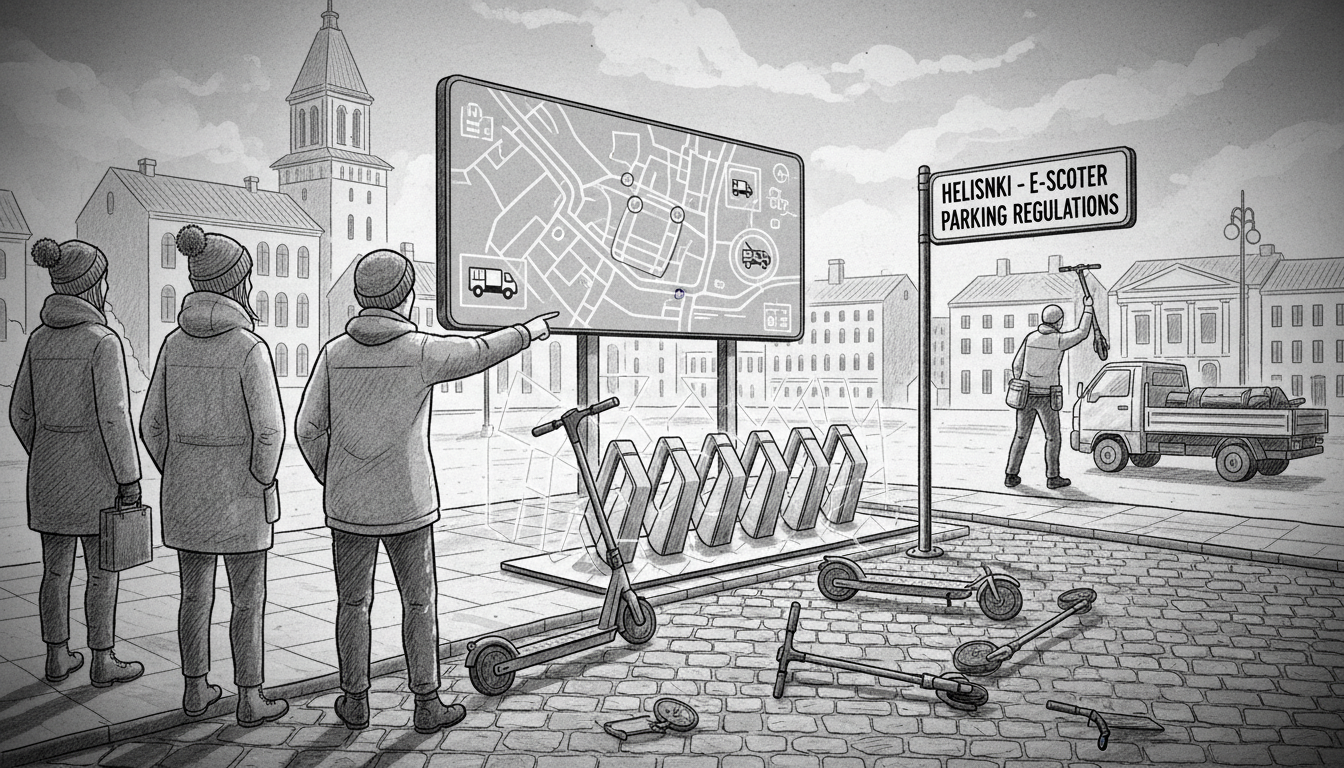Helsinki will implement stricter regulations for electric scooter parking starting next year. The city plans to introduce a micro-mobility license system that will fundamentally change how shared scooters operate in urban areas.
The new rules require scooters to be parked in designated zones across several central neighborhoods. These include Kallio, Taka-Töölö, Pasila, Alppiharju, Sörnäinen, and Hermann. The restricted area will extend eastward to Mustikkamaa and Korkeasaari.
City officials describe the geo-fencing system as an effective solution to parking chaos. If users attempt to end their ride outside approved zones, the app will continue charging until the scooter reaches a proper parking spot. This approach has proven successful in directing users to correct parking locations.
Parking enforcement will gain immediate authority to remove improperly parked scooters. Companies will face fees of approximately 60 euros per relocated scooter. This represents a significant shift from previous requirements where officials needed to demonstrate specific obstruction before removal.
The micro-mobility license system marks Helsinki's transition from voluntary agreements with operators to formal regulation. City officials acknowledge this provides greater control over scooter services while ensuring orderly urban mobility.
Heikki Palomäki, head of the traffic systems unit, explained the practical implications. Finding locations for approximately 160 new scooter parking spots has been challenging in some dense urban areas. The process required creative solutions within limited street space.
The changes will reduce about 58 car parking spaces across the new restricted zones. Palomäki recognizes this may frustrate drivers, particularly those losing parking near their homes. However, he notes the impact remains minimal relative to Helsinki's thousands of street parking spaces overall.
Operator limits will also tighten under the new framework. Zone 1 will permit maximum 1,200 scooters collectively across all companies, while Zone 2 allows up to 3,500 devices. These caps represent a reduction from the current peak of approximately 12,000 active scooters during high season.
Five companies operated in Helsinki during the last season, though one ceased operations mid-period. The new licensing system aims to create more sustainable scooter services that better integrate with urban infrastructure.
The initial licenses will remain valid until February 2027. City officials emphasize this as an evolving framework that will adapt based on operational experience and market developments. Regular assessments will determine necessary adjustments to balance mobility needs with urban order.
Helsinki's approach reflects growing European cities' challenges with micromobility management. As electric scooters became rapidly popular, cities initially struggled with sidewalk clutter and safety concerns. The structured licensing system represents Helsinki's move toward integrating these services as permanent transportation options rather than temporary experiments.
The city environment board will review the micro-mobility license terms in its upcoming meeting. Implementation will proceed gradually, with full enforcement expected by 2026. This timeline allows operators to adapt their systems and users to become familiar with new parking requirements.

